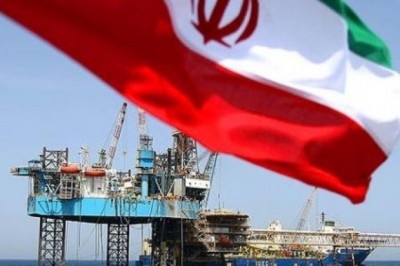Eager Shell, ENI Executives Jet to Tehran For Talks on Post-Sanctions Investment

Royal Dutch Shell and Eni held talks with Tehran ahead of an expected agreement by June 30 with the P5+1 group of countries to lift sanctions on Iran’s energy industry.
In the first public confirmation of negotiations, a Shell representative said the two sides “discussed potential areas of business cooperation should sanctions be lifted,” as well as Shell’s outstanding debt of around $2 billion, which it owes to the National Iranian Oil Company for crude oil which it had taken delivery of but been unable to pay for due to sanctions.
At an OPEC meeting in Vienna earlier this month Shell Chief Executive Ben van Beurden met with Iranian Oil Minister Bijan Zanganeh to “give assurance that payments will be made as soon as they can be made,” when sanctions against Iran are lifted.
Iran and the P5+1 group of Britain, China, France, Germany, Russia and the US hope to reach a final deal on Iran’s nuclear program and international sanctions before the June 30 deadline for a final agreement, having announced a framework plan of action on April 2 after negotiations in Geneva to end the restrictions.
On the sidelines of the OPEC meeting in Vienna, Zanganeh also met with executives from other major European energy companies, including BP (British Petroleum), Total (of France), Eni (Italy) and Lukoil (Russia) over possible investment in Iranian oil production.A representative from the Italian energy company Eni also confirmed on Wednesday that its chief executive Claudio Descalzi had flown to Tehran in May to meet with Oil Minister Zanganeh, to discuss “the possibility of investing in Iran’s oil and gas industry again,” provided that sanctions are lifted and a favorable contract can be agreed.
In April, Zanganeh said Iran had already made preparations to increase production by around one million barrels a day after sanctions are lifted. Iran’s current oil production is around 2.7 million barrels per day, of which around one million barrels are exported, under the terms of international sanctions.
Earlier this month at the World Gas Conference in Paris, Azizollah Ramezani of the National Iranian Gas Company said Iran was aiming to increase gas production from 800 million to 1.2 billion cubic meters per day in the next five years, and is looking for $100 billion in investment from European energy companies in order to rebuild its gas industry.



